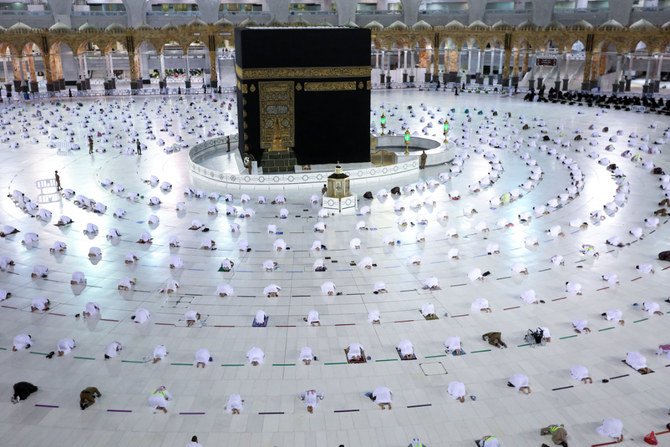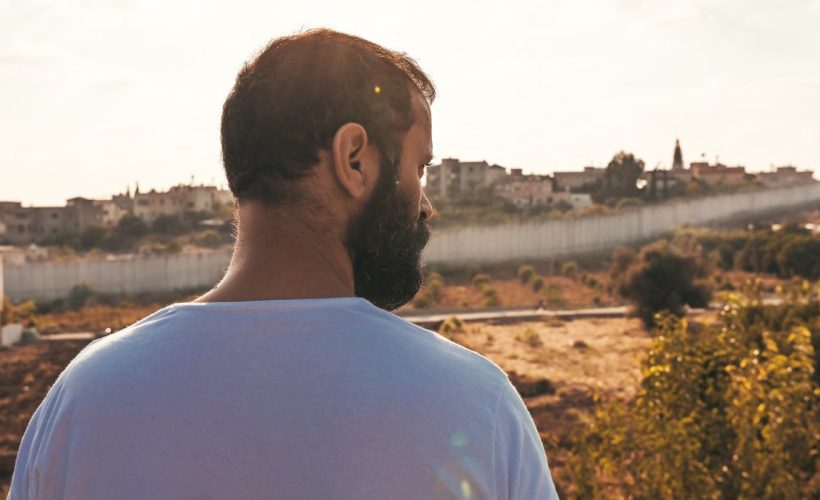Society
4.28.2021
Covid-19: Ramadan pilgrimage under high surveillance

From April 12 to May 12, it is the month of Ramadan for the Muslim religion. To ensure that this sacred time takes place in the best conditions and in respect of the security, health and safety of pilgrims visiting the holy mosques, the Saudi Ministry of Hajj and Umrah (which means small pilgrimage) has announced a series of guidelines…
In an exclusive interview, Dr. Amr Al-Maddah, Deputy Minister of Services at the Ministry of Hajj and Umrah, answered all questions about these guidelines posed by pilgrims wishing to perform the traditional Ramadan pilgrimage. Here are some of the insights.

First dose of vaccine required for access to places of worship
The first directive put the emphasis on vaccination. Indeed, as vaccinations are at the top of the Kingdom’s priority list, no worshipper is allowed to enter the Great Mosque in Makkah or the Prophet’s Mosque in Madinah without having received at least one dose of the vaccine against the coronavirus. Visitors and pilgrims from abroad must also carry certificates of vaccination. But this rule is not sufficient to regulate the passage of people to the places of worship and to ensure their safety…

Treatment of pilgrims from countries with increased cases of coronavirus
According to Dr. Amr Al-Maddah, flights from other countries have not been suspended despite the increase in coronavirus cases in the territories of origin.
Indeed, since vaccines can now prevent transmission of the virus, mitigate the effects of the pandemic, and reduce the possibility of transmitting the virus to others, the risk is assumed to be much lower for pilgrims who have already received a COVID-19 vaccine.
A pilgrim’s journey from the time of arrival in Saudi Arabia to the completion of Umrah
The various institutions such as the Ministry of Hajj and Umrah, the Ministry of Health, and the service and security providers have coordinated all their actions to ensure the safety of all.
The operational capacity of the Grand Mosque is predetermined based on the preventive measures adopted by the Ministry of Health. Thus, every pilgrim has the opportunity to reserve a place to be issued with an entry permit to these places of worship which he/she can present to the organizers.
Before arriving in Makkah, pilgrims have to pay the price of transportation services to licensed companies, ensuring a safe transit by disinfecting the vehicles and leaving spaces between the seats.
Afterwards, pilgrims will be transported to the designated bus stops in the Grand Mosque where permits will be checked again for security reasons before entering the prayer time.
But it is also possible to book a hotel room overlooking the Grand Mosque and the central area. These can help those who book a room to apply for Umrah during their stay.
See also
Saudi Arabia: the Great Mosque of Mecca could soon be powered by the footsteps of its visitors !
Consequences of a permit violation
Offenders will be fined SR 10,000 ($2,666) for performing Umrah without a permit and SR 1,000 ($267) for worshipping in the Grand Mosque without a permit.
These penalties are intended to prevent people from committing offenses that pose a danger to pilgrims and people working at the Grand Mosque. While they demonstrate the rigor imposed by the protocol, few people have violated them so far.
Taking into account the steady increase in the number of people vaccinated for the issuance of permits
The predetermined operational capacity is updated daily and is now between two and a half and three times what it was before. What is taken into account is the overall health situation.

The more people get vaccinated, the lower the risk.
It is hoped that life will soon return to normal and everyone will be welcome to visit the Grand Mosque.
popular

